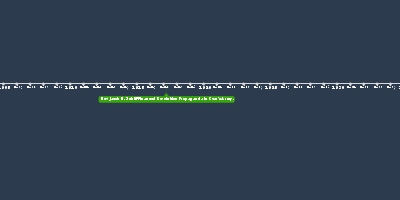4 ottob 1947 anni - "Who's to Write the History of the War?" by Charles A. Beard The Saturday Evening Post 1947, Oct 4
Descrizione:
The Saturday Evening Post 1947, Oct 4 - Who's to Write the History of the War by Charles A. BeardIN the battle that has raged in Congress and the press over the official papers of President Roosevelt which were shipped from Washington to Hyde Park by the executors of his estate, one strategic move in other quarters has been neglected. This move involves the use of these and other secret papers in preparing the "right kind" of history of World War II for the education of the American people. It is lightly sketched in the annual report for the year 1946, recently issued by the Rockefeller Foundation.
The Rockefeller Foundation and the Council on Foreign Relations, it there appears, intend to prevent, if they can, a repetition of what they call in the vernacular '' the debunking journalistic campaign following World War I." Translated into precise English, this means that the foundation and the council do not want journalists or any other persons to examine too closely and criticize too freely the official propaganda and official statements relative to "our basic aims and activities" during World War II. In short, they hope that, among other things, the policies and measures of Franklin D. Roosevelt will escape in coming years the critical analysis, evaluation and exposition that befell the policies and measures of President Woodrow Wilson and the Entente Allies after World War I.
Moreover, the foundation and the council are moving fast in the realization of their designs. The foundation has granted the sum of $139,000 to the Council on Foreign Relations. The council has employed Prof. William Langer, of Harvard University, to write, for the benefit of an American
public,'' a "clear and competent" history of World War II from 1939 to "the peace settlements," in three volumes. But how can the professor write it unless he has access to secret records withheld from other scholars and inquirers?
The parties to the enterprise apparently have expectations. The foundation states in its report that Professor Langer has had "exceptional access to materials bearing on foreign relations." The statement is correct. The professor confirms it in the preface to his recent volume-Our Vichy Gamble-a spirited defense of the Roosevelt Administration's policy in dealing with Vichy France. He undertook this work at the suggestion of Secretary Hull, who was disturbed by press attacks on the Vichy policy. For use in preparing it, he was furnished secret documents or digests of such documents by President Roosevelt, Secretary Hull, Admiral Leahy and the War Department.
Thus given special privileges by officials of the Government, Professor Langer made a draft of his book. Secretary Hull and other parties of interest read the draft, offered comments, and after it was revised, approved publication. Duly blessed by Secretary Hull, the War Department and Admiral Leahy, the professor's book was issued by a private publisher with an official fanfare valuable to all parties of interest. Presumably, in carrying out the new Rockefeller commission, Professor Langer will again enjoy special favors denied to others- favors from the State Department, the War Department, Admiral Leahy, President Truman and the guardians of the Roosevelt and other papers.
Apart from all questions of legality, which are not insignificant, this undertaking is, in my opinion, unfortunate for the cause of truth about the war and the judicious discussion of the great issues that have ensued from the war. Instead of promoting the liberty of research and writing that winnow facts from fictions, subsidized histories of this kind, prepared to serve a purpose fixed in advance, are more likely to perpetuate errors than to eliminate them. At best, in such complicated affairs as World War II, truth is difficult to discover and establish, but certain conditions are necessary to the attainment of the utmost truth that is possible to finite human beings. Official archives must be open to all citizens on equal terms, with special privileges for none; inquiries must be wide and deep as well as uncensored; and the competition of ideas in the forum of public opinion must be free from political interests or restraints.
In short, then, the question is simple: Who is to write the history of World War II? Some person or persons well-subsidized and enjoying access, under Government patronage, to secret archives? Or is the opportunity of inquiring and writing the story of this critical period to be open to all talents on the same terms, without official interference or favoritism'? There is the choice before us, and if tested methods of truth-seeking are to be followed in the business of history writing, the answer seems rather obvious.
Aggiunto al nastro di tempo:
Data:
4 ottob 1947 anni
Adesso
~ 78 years ago
